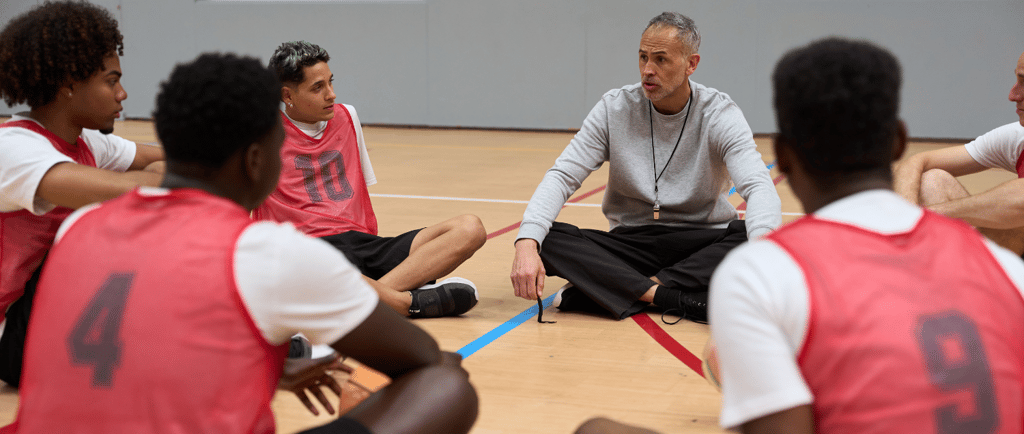What Separates Great Youth Coaches from the Rest
Learn actionable tips to elevate your coaching—so you can help athletes grow in skill, mindset, and confidence all season long.
9/22/20254 min read


Being a volunteer coach or a sports parent often means wearing many hats—motivator, teacher, planner, occasional peacemaker. But there’s a world of difference between showing up to “fill the slot” and stepping in to truly lead. Some coaches simply run drills so players stay busy; others light a spark that lasts—for both the season and the person. In youth athletics, those who stand out tend to share certain habits, mindset, and skills. Recognizing what makes someone a great coach (or parent-coach) is a first step to raising the level—for your team, your athletes, even your own satisfaction in the role.
What the Research Reveals: What Great Coaching Looks Like
Several recent studies help us see the traits of coaches who make a lasting difference:
A systematic review of Coach Education Program Interventions (CEPIs) showed that trained coaches tend to have moderately to strongly better outcomes with athletes, both physically and psychologically, compared to coaches who haven’t had such development.
Another study using the Delphi method among youth coaches in South Korea identified top qualities of successful coaches: enthusiasm, ability to motivate, fairness (no discrimination), and risk management among them.
The Olympic Movement’s list of “Qualities of a Great Sports Coach” highlights traits such as patience, clear communication, knowing the sport deeply, supporting athletes emotionally, goal orientation, respect, and being observant of individual needs.
What becomes clear is this: great coaching isn't just about Xs and Os of sport technique. It’s about character, consistency, relationship, and intentionality.
Great Coaches vs. Those Who Just Show Up
Here are key differences between coaches who truly elevate their team and those who simply "do their time":
1. Preparation & Intentionality
Great coaches plan. They arrive with a vision: for the season, for each practice, for individual players. They think about how to make each practice meaningful—not just how to keep kids occupied. Coaches who just show up might run drills but often lack structure, clear objectives, or follow-through. A practice without purpose may make players physically tired—but doesn’t always lead to growth.
2. Emotional Intelligence & Relationship Building
Top coaches notice more than just skill. They notice moods, effort, insecurities. They build relationships with each player—learning how each one responds to correction vs. encouragement. Research shows that between ages ~8‑16, coaches’ feedback becomes more influential than parents’ in how young athletes form their sense of competence.
3. Teaching & Communication, Not Just Commanding
Instead of “do this, do that,” excellent coaches teach why and how. They use feedback that is clear, actionable, and tied to the player’s level. They invite questions. They adapt explanations to suit different learning styles. Coaches who just show up often rely on generic phrases (“You need more effort”, “Don’t mess up”) without clarity or opportunity for growth.
4. Consistency & Presence
Better coaches are reliable: they show up mentally, too. They follow through on what they say, hold players to expectations they set, and maintain tone—especially after losses. They’re consistent with messages: what is “effort,” what is “teamwork,” what kinds of attitude are expected. Coaches who skim by—or who pick and choose when to enforce values—risk losing trust and respect.
5. Growth Mindset & Continuous Learning
Great coaches seek to improve. They learn new methods, attend clinics, get feedback, read research. They stay curious. The study on elite coaches from the University of Queensland found that the best coaches maintain a “thirst for knowledge,” always seeking small improvements—even after years of experience.
6. Focus on Person, Not Just Player
Yes, improving athletic ability matters—but great coaches see the person behind the player. They emphasize character, effort, respect, teamwork, accountability. They know that what happens on the field echoes off of it—in school, with friends, in life. Coaches who simply show up may focus mostly on wins, stats, or techniques—but miss—or neglect—the chance to affect character for the long haul.
Concrete Tips to Shift from “Just Showing Up” to “Great Coaching”
If you’re a coach or parent looking to level up, here are practical steps that map to what research and practice tell us great coaches do differently:
Set clear goals for the season and for practices—for team culture, individual improvement, sportsmanship, as well as wins. Don’t wing it. When players know where they’re headed, buy-in and accountability increase.
Build regular feedback loops—not just post-game comments. During practice, give specific, timely feedback. Ask players how they feel certain drills or coaching methods are going. Listen. Adjust.
Differentiate your coaching—realize that not all players respond the same way. Some need encouragement, others need challenge. Some learn by doing, others by watching. Adjust your approach for different players rather than believing one style fits all.
Create rituals & norms that reinforce values—like starting or ending practice with a check-in, a team mantra, acknowledging someone’s effort, or making mistakes part of the process. The more these become baked in, the more they shape behavior.
Invest in your own growth—read, attend clinics or workshops, observe other coaches. The meta‑analysis of coach education found that most coaches who undergo formal training see meaningful positive changes in how they coach—and how their athletes respond.
Model consistency and integrity—if you say one thing but do another, players notice. Respect the rules, treat all players equitably, show up on time, maintain your composure. Your behavior becomes their template.
Why It Matters: The Big Picture Impact
Stepping up from a “just turning up” coach to a great coach doesn’t just improve the next practice—it changes the trajectory of players’ lives. Positive coaching environments are linked with lower dropout rates, higher enjoyment, stronger self-esteem, better mental health, and more persistence—even when things get tough.
For volunteer coaches, part of the satisfaction comes from seeing players grow—not just in skill—but in confidence and character. For parents, it means your child is more likely to leave each practice feeling good, proud, and excited to come back.
Final Thoughts
If you’re coaching a youth team, you have to decide: are you there just to occupy the time, or are you there to make a difference? Great coaches are those who take that second path. They prepare, they connect, they adapt, they keep learning, and they coach the person, not just the athlete.
None of these traits require superstar credentials—or perfect training. They require intention, empathy, consistency, and a willingness to grow. And every coach who leans into those gets chances to build not just better players—but better humans.

